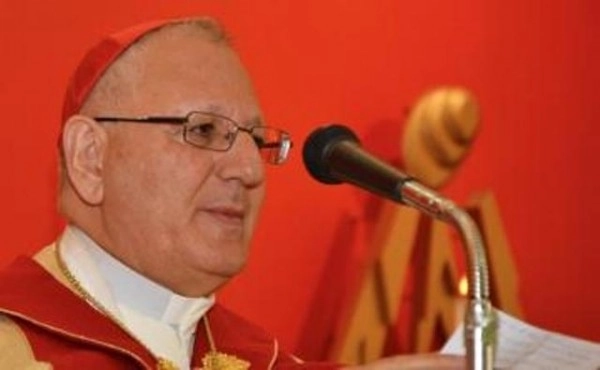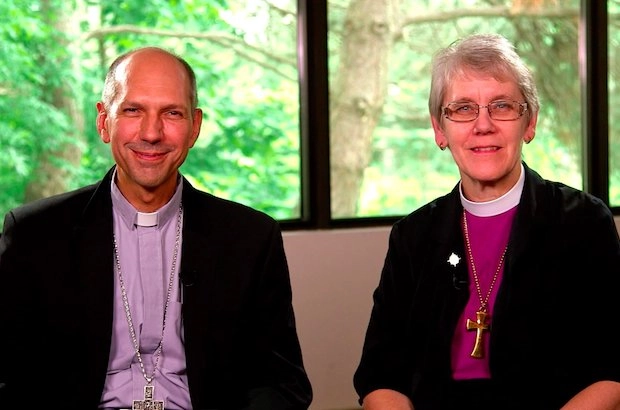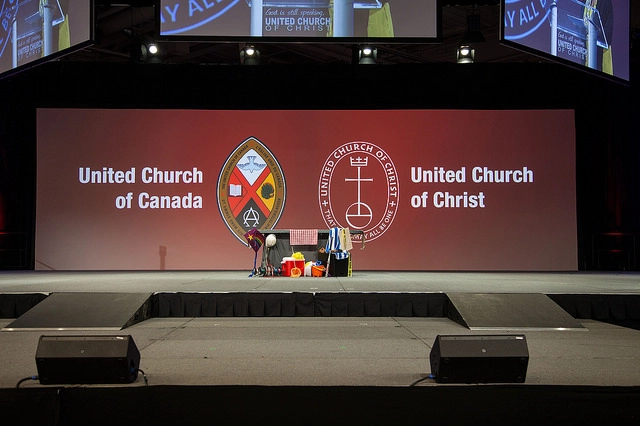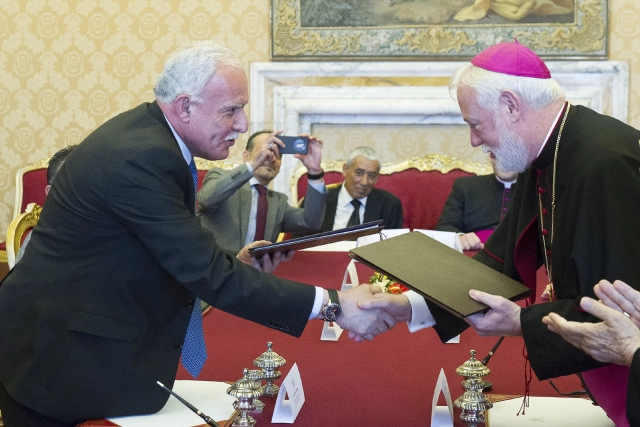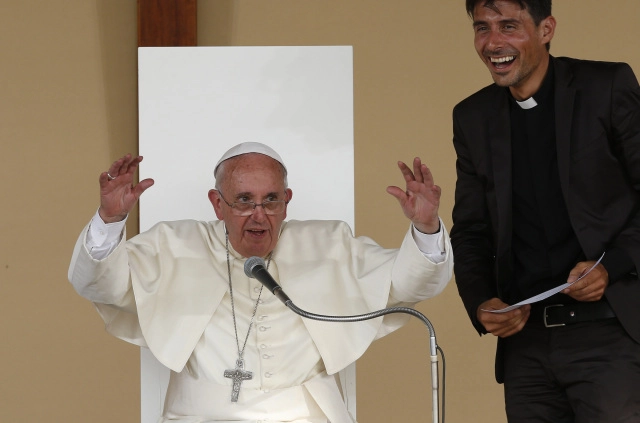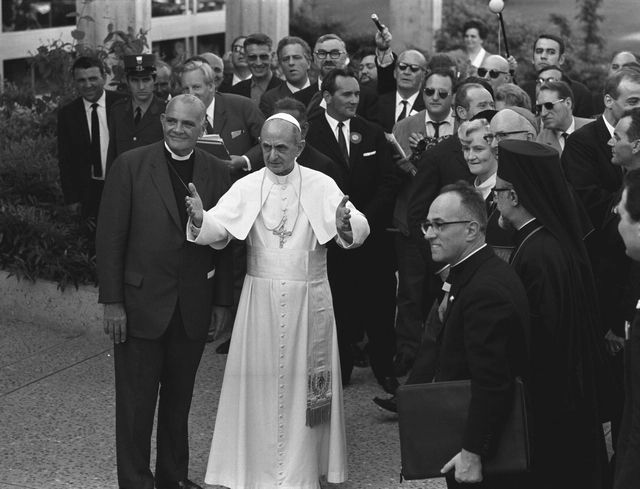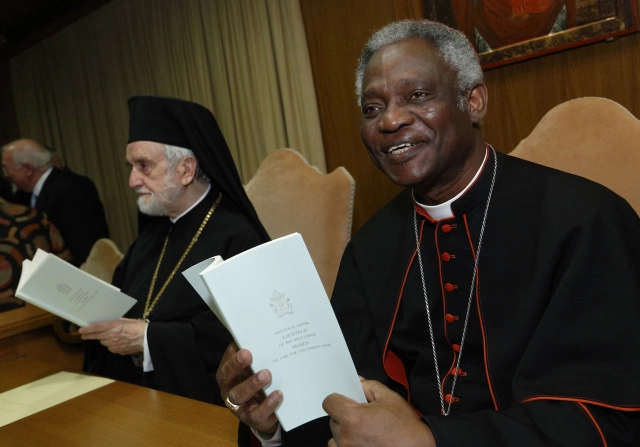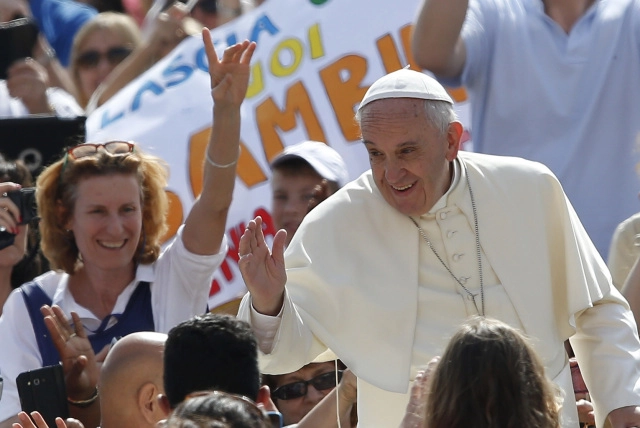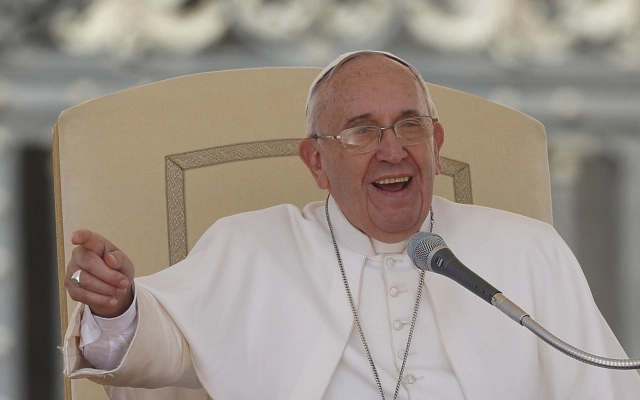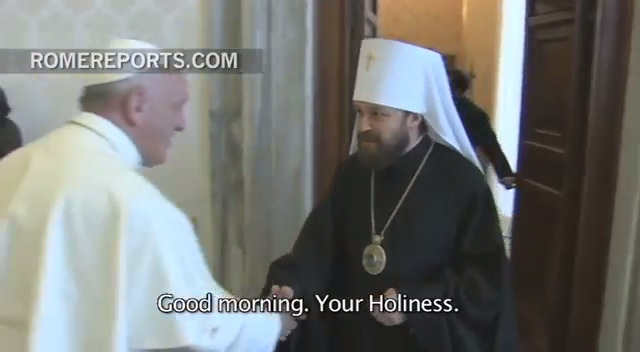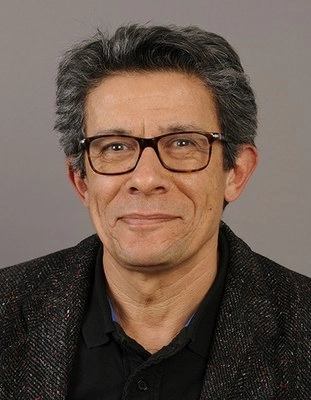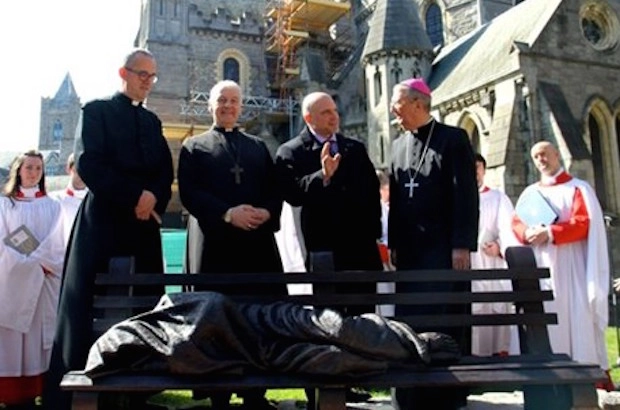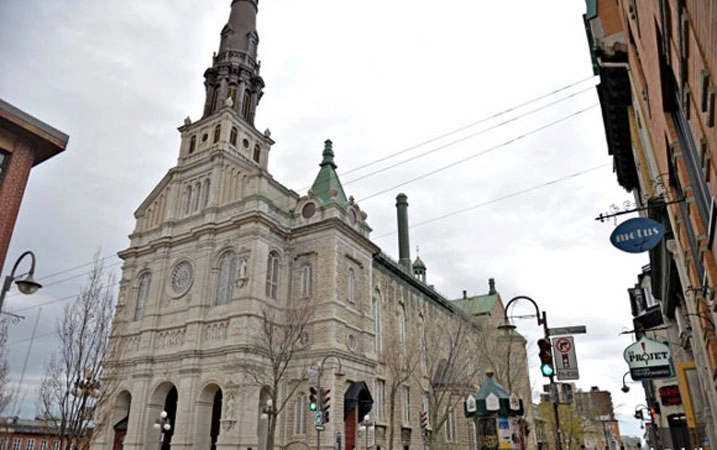- Français
- |
- Booklist
- |
- Week of Prayer
- |
- Links
- Areopagus - a forum for dialogue
- Academic journals
- Acronyms
- Bible tools
- Bibliographies
- Booksellers and publishers
- Churches
- Canadian church headquarters
- Directory of Saskatchewan churches
- Retreat centres
- Saskatchewan church and non-profit agencies
- Ecumenism.net Denominational links
- Anabaptist & Mennonite
- Anglican
- Baptist
- Evangelical
- Independent episcopal
- Lutheran
- Methodist, Wesleyan, and Holiness
- Miscellaneous
- Mormon
- Orthodox (Eastern & Oriental)
- Para-church ministries
- Pentecostal / charismatic
- Presbyterian & Reformed
- Quaker (Society of Friends)
- Roman & Eastern Catholic
- United and uniting
- Documents of Ecumenical Interest
- Ecumenical agencies
- Ecumenical Booklist
- Ecumenical Dialogues
- Glossary
- Human rights
- Inter-religious links
- Justice & peace
- Lectionaries
- Religious news services
- Resource pages
- Search Ecumenism.Net
- |
- Documents
- Ancient & Medieval texts
- Ecumenical Dialogues
- Interreligious
- Anabaptist & Mennonite
- Anglican
- Evangelical
- Lutheran
- Orthodox
- Reformed & Presbyterian
- Roman & Eastern Catholic
- United & Uniting
- Miscellaneous churches
- Canadian Council of Churches (CCC)
- Conference of European Churches (CEC)
- Interchurch Families International Network (IFIN)
- National Council of Churches in Australia (NCCA)
- Lausanne Committee for World Evangelism (LCWE)
- World Council of Churches (WCC)
- Other ecumenical documents
Church traditions
Documents from ecumenical agencies
- |
- Dialogues
- Adventist-Reformed
- African Instituted Churches-Reformed
- Anglican-Lutheran
- Anglican-Orthodox
- Anglican-Reformed
- Anglican-Roman Catholic
- Anglican-United/Uniting
- Baptist-Reformed
- Disciples of Christ-Reformed
- Disciples of Christ-Roman Catholic
- Evangelical-Roman Catholic
- Lutheran-Mennonite
- Lutheran-Mennonite-Roman Catholic
- Lutheran-Reformed
- Lutheran-Roman Catholic
- Mennonite-Reformed
- Mennonite-Roman Catholic
- Methodist-Reformed
- Methodist-Roman Catholic
- Oriental Orthodox-Reformed
- Orthodox-Reformed
- Orthodox-Roman Catholic
- Pentecostal-Reformed
- Prague Consultations
- REC-WARC Consultations
- Roman Catholic-Lutheran-Reformed
- Roman Catholic-Reformed
- Roman Catholic-United Church of Canada
- |
- Quick links
- Canadian Centre for Ecumenism
- Canadian Council of Churches
- Ecumenical Shared Ministries
- Ecumenism in Canada
- Interchurch Families International Network
- International Anglican-Roman Catholic Commission for Unity and Mission
- Kairos: Canadian Ecumenical Justice Initiatives
- North American Academy of Ecumenists
- Prairie Centre for Ecumenism
- Réseau œcuménique justice et paix
- Week of Prayer for Christian Unity
- Women's Interchurch Council of Canada
- World Council of Churches
- |
- Archives
- |
- About us
News archive for 2015
Archives d'actualités pour 2015
The most interesting, and potentially most dramatic, ecumenical news this week was the proposal of Patriarch Raphael I (Louis Sako) of Bablyon, head of the Chaldean Catholic Church, who proposed a plan for a united Church of the East that would entail his own resignation.
The schism between the Church of the East and the rest of the orthodox Christian world is the oldest surviving division in the Church, its origins dating back to the Council of Ephesus in 431 AD. It was the Christian Church in the Persian Empire, and has often (wrongly) been called Nestorian. Acknowledging that there is no brief way to do justice to the history of communion and schism between the Church of the East and the Catholic/Orthodox Church(es) in the last 1,600 years, suffice it to say that what remains is a very small community based in Baghdad but effectively existing as a diaspora community, with its leaders often in Exile.
There are three current churches succeeding from that original Church of the East, which was founded, according to tradition, by the apostle Thomas and by Mar Addai (Jude/Thaddeus, maybe, or a disciple of Thomas) and Mari, a disciple of Addai.
… Read more » … lire la suite »

 Permanent link: ecumenism.net/?p=8599
Permanent link: ecumenism.net/?p=8599
Categories: News • In this article: Assyrian, Chaldean, church union, Iraq

 Lien permanente : ecumenism.net/?p=8599
Lien permanente : ecumenism.net/?p=8599
Catégorie : News • Dans cet article : Assyrian, Chaldean, church union, Iraq
In a nine-page contribution submitted to the Anglican Church of Canada’s commission on the marriage canon earlier today, the Anglican-Roman Catholic Dialogue of Canada (ARC) warns that changing Canon 21 to allow for same-sex marriages would “weaken the very basis of our existing communion, and weaken the foundations upon which we have sought to build towards fuller ecclesial communion.”
The contribution, produced at the request of the Anglican church, acknowledges that while great changes have taken place in the broader cultural understanding of marriage in North America in recent years, “Roman Catholics are left to wonder what has changed, such that our previous common understanding of marriage is left in doubt.”
The commission on the marriage canon, established by Council of General Synod in the fall of 2013, was created in response to a resolution approved at General Synod earlier that year to bring a motion concerning same-sex marriage to its next meeting in 2016. The commission’s mandate is to carry out a “broad consultation” within the church in preparation for the motion, and part of this consultation has involved seeking opinions from ecumenical partners such as the Roman Catholic Church.
… Read more » … lire la suite »

 Permanent link: ecumenism.net/?p=8603
Permanent link: ecumenism.net/?p=8603
Categories: Anglican Journal, Dialogue, Documents • In this article: Anglican Church of Canada, CCCB, dialogue, marriage

 Lien permanente : ecumenism.net/?p=8603
Lien permanente : ecumenism.net/?p=8603
Catégorie : Anglican Journal, Dialogue, Documents • Dans cet article : Anglican Church of Canada, CCCB, dialogue, marriage
Delegates to the United Church of Christ 2015 General Synod in Cleveland on Monday morning unanimously approved an amendment to recognize a full communion between the United Church of Christ and the United Church of Canada. The union fulfills the promise the churches made to one another in 2013. “Let us dare to dream of the unexpected places we might discover as Uniting and United Churches in North America,” said Karen Georgia Thompson, United Church of Christ minister for ecumenical and interfaith relations, echoing the theme of General Synod 30 in Cleveland June 25-30.
Passage of the amendment on June 29 drew a sustained 45-second applause from delegates, some of whom stood and cheered. For the Rev. Michael Denton – United Church of Christ Executive Board member and Conference Minister of the Pacific Northwest Conference – the vote was cause for celebration. “We share significant borders with Canada,” said Denton, whose conference comprises Washington state, Northern Idaho and Alaska. “This is an opportunity for a cross-border-sharing ministry. Some United Church of Christ churches are closer to Canada than any other United Church of Christ churches.”
… Read more » … lire la suite »

 Permanent link: ecumenism.net/?p=8601
Permanent link: ecumenism.net/?p=8601
Categories: News • In this article: full communion, United Church of Canada, United Church of Christ

 Lien permanente : ecumenism.net/?p=8601
Lien permanente : ecumenism.net/?p=8601
Catégorie : News • Dans cet article : full communion, United Church of Canada, United Church of Christ
The Holy See and Palestine have signed a historic agreement that supports a two-state solution to the ongoing conflict in the Holy Land, based on the 1967 borders between Israel and Palestine.
The two parties signed the “Comprehensive Agreement between the Holy See and the State of Palestine” at the Vatican June 26. The accord, which includes a preamble and 32 articles, focuses mostly on the status and activity of the Catholic Church in Palestine. It assures the church “juridical recognition” and “guarantees” for its work and institutions in Palestine.
The second chapter of the agreement focuses entirely on freedom of religion and conscience and includes the right to worship and practice one’s faith, as well as the rights of Christian parents to give their children religious education, of Christians to take holy days off work, and of military personnel to have access to pastoral care.
The preamble recognizes the right to self-determination of the Palestinian people, the importance of Jerusalem and its sacred character for Jews, Christians and Muslims, and the objective of a two-state solution.
At the signing ceremony, Archbishop Paul R. Gallagher, the Vatican’s secretary for relations with states, said he hoped the agreement would provide a “stimulus” for a “definitive end to the long-standing Israeli-Palestinian conflict.”
… Read more » … lire la suite »

 Permanent link: ecumenism.net/?p=8616
Permanent link: ecumenism.net/?p=8616
Categories: CNS • In this article: Palestine, treaty, Vatican

 Lien permanente : ecumenism.net/?p=8616
Lien permanente : ecumenism.net/?p=8616
Catégorie : CNS • Dans cet article : Palestine, treaty, Vatican
In a world of “soap-bubble values,” hypocrisy and delusion, Pope Francis told young people to fight back with real love and told workers to build a new economy based on creativity and courage.
He also asked the Waldensians, whom the Catholic Church excommunicated and persecuted hundreds of years ago, for forgiveness.
“I ask you for forgiveness for the un-Christian, even inhuman, attitude and behavior that we had against you over history,” he told representatives and members of the Waldensian community June 22 in Turin.
“In the name of Jesus Christ, forgive us,” he said during a visit to the temple, making him the first pope in 800 years to visit a Waldensian place of worship.
The historic gesture was part of Pope Francis’ two-day pastoral trip to the northern Italian city. The pope visited June 21-22 to venerate the Shroud of Turin as well as commemorate the 200th anniversary of the birth of St. John Bosco.
… Read more » … lire la suite »

 Permanent link: ecumenism.net/?p=8609
Permanent link: ecumenism.net/?p=8609
Categories: CNS • In this article: Pope Francis, repentance, Waldensians

 Lien permanente : ecumenism.net/?p=8609
Lien permanente : ecumenism.net/?p=8609
Catégorie : CNS • Dans cet article : Pope Francis, repentance, Waldensians
During the week of 22 June 2015, the 50th anniversary of the Joint Working Group between the Roman Catholic Church and the World Council of Churches will be celebrated by the church leaders. A public event to mark the anniversary will be held at the Centro Pro Unione in Rome, Italy on 23 June.
One of the ecumenical legacies of improved relations among churches growing from the Second Vatican Council, the JWG has been instrumental since 1965 in coordinating activities of the WCC, its member churches, related ecumenical bodies and the Catholic commissions and councils engaged in theological discourse and common action throughout the world.
The working group has met regularly over the past half-century and has published reports of its activities. The JWG is co-moderated by Metropolitan and Archbishop Nifon of Targoviste from the Romanian Orthodox Church, a member of the WCC central and executive committees, and Archbishop Diarmuid Martin of the Catholic Church.
Over the past 50 years, Roman Catholics have become full members of the Faith and Order Commission coordinated by the WCC, provided staff in the WCC areas of evangelization and theological education and sent observer delegations to participate in WCC assemblies and other major conferences. Reciprocal arrangements have been implemented, with active Orthodox and Protestant participation in Catholic forums.
From 1968 through 1983, the WCC and Roman Catholic Church experimented with common social policies and service ministries within a commission on society, development and peace (SODEPAX). In 2011, the WCC, Roman Catholic Pontifical Council on Inter-religious Dialogue and the World Evangelical Alliance jointly published landmark recommendations on the writing of churches’ guidelines on mission and evangelization, Christian Witness in a Multi-Religious World.
… Read more » … lire la suite »

 Permanent link: ecumenism.net/?p=8592
Permanent link: ecumenism.net/?p=8592
Categories: WCC News • In this article: ecumenism, Paul VI, WCC

 Lien permanente : ecumenism.net/?p=8592
Lien permanente : ecumenism.net/?p=8592
Catégorie : WCC News • Dans cet article : ecumenism, Paul VI, WCC
In his brief pontificate, Pope Francis has coined some colourful terms to get his points across, for example, using “bat Christians” to describe those who hide their faith.
While the new phrases he uses in his ecology encyclical are not as punchy, they succinctly help illustrate his points that care for the environment is a human and moral obligation, that global warming and pollution have an unfairly heavy impact on the poor and that a real commitment to ecology will entail individual conversion and changed political and economic priorities.
The following is a list defining some key phrases Pope Francis uses in the encyclical, “Laudato Si’, on Care for Our Common Home.”
… Read more » … lire la suite »

 Permanent link: ecumenism.net/?p=8614
Permanent link: ecumenism.net/?p=8614
Categories: CNS • In this article: ecology, encyclicals, environment, Pope Francis

 Lien permanente : ecumenism.net/?p=8614
Lien permanente : ecumenism.net/?p=8614
Catégorie : CNS • Dans cet article : ecology, encyclicals, environment, Pope Francis
The earth, which was created to support life and give praise to God, is crying out with pain because human activity is destroying it, Pope Francis says in his long-awaited encyclical, “Laudato Si’, on Care for Our Common Home.”
All who believe in God and all people of good will have an obligation to take steps to mitigate climate change, clean the land and the seas, and start treating all of creation — including poor people — with respect and concern, he says in the document released at the Vatican June 18.
Laudato Si’: Arabic Deutsch English Español Français Italiano Polski Português

 Permanent link: ecumenism.net/?p=8611
Permanent link: ecumenism.net/?p=8611
Categories: CNS • In this article: ecology, encyclicals, environment, Pope Francis

 Lien permanente : ecumenism.net/?p=8611
Lien permanente : ecumenism.net/?p=8611
Catégorie : CNS • Dans cet article : ecology, encyclicals, environment, Pope Francis
On Thursday, Pope Francis issued a powerful and timely encyclical on the environment, urging humanity to come to its senses and cease its reckless onslaught against God’s creation. He addressed this letter not only to his fellow Catholics, but to all people of the world, asking people of different religious traditions to unite in common purpose to save our planet.
As religious figures, we too accept the overwhelming scientific consensus that global warming comes from human activity, as we see no conflict between faith and reason.
And, coming from the three great Abrahamic faiths – Judaism, Christianity and Islam – we stand together on the need to be good stewards of the earth. All of our traditions affirm the inherent goodness of all creation, and the binding obligation on human beings to protect our common home, the planet that sustains us. The Hebrew Scriptures state clearly that the Earth belongs to God alone, and that we are merely sojourners – we do not have ownership on a permanent basis: the fruits of the earth belong to all, including the poor. This ancient teaching is affirmed by both Christianity and Islam. Christians also view the world through a sacramental lenses, believing that the redemption of Christ has in turn redeemed all of creation. And Islam can be thought of as a religion of nature, with 750 verses in the holy Qur’an speaking about our responsibility to the environment and our relationship with all creatures. Islam too recognizes that everything in the heavens and the earth belong to God, and that we are mere trustees and vice-regents.
… Read more » … lire la suite »

 Permanent link: ecumenism.net/?p=8597
Permanent link: ecumenism.net/?p=8597
Categories: Opinion • In this article: climate change, ecology, encyclicals, environment, interfaith, Pope Francis

 Lien permanente : ecumenism.net/?p=8597
Lien permanente : ecumenism.net/?p=8597
Catégorie : Opinion • Dans cet article : climate change, ecology, encyclicals, environment, interfaith, Pope Francis
“Good morning, Your Holiness.”
It was a meeting between Pope Francis and Metropolitan Hilarion from the Russian Orthodox Church.
With the help of a translator, the head of the Department of External Church Relations, met with the Pope, for a brief meeting. After their one-on-one discussion, the Pope met the rest of the delegation, some of whom work directly with Cardinal Kurt Koch, president of the Pontifical Council for Promoting Christian Unity.
Even though it was a closed door meeting, the ongoing conflict in Ukraine and the role Russia plays in it, was surely discussed. Especially in light of President Putin’s recent visit with Pope Francis.
… Read more » … lire la suite »

 Permanent link: ecumenism.net/?p=8620
Permanent link: ecumenism.net/?p=8620
Categories: News • In this article: Catholic, Pope Francis, Russian Orthodox

 Lien permanente : ecumenism.net/?p=8620
Lien permanente : ecumenism.net/?p=8620
Catégorie : News • Dans cet article : Catholic, Pope Francis, Russian Orthodox
Rev. Dr Odair Pedroso Mateus, professor of ecumenical theology at the Ecumenical Institute in Bossey, Switzerland and acting director of the World Council of Churches (WCC) Commission on Faith and Order, has been confirmed as the new Faith and Order director. He has been appointed by the executive committee of the WCC, at their meeting in Armenia 8-12 June, on the recommendation of the general secretary, supported by the clear and unanimous recommendation from a search panel representing the Faith and Order Commission and senior staff of the WCC. A pastor of the Independent Presbyterian Church of Brazil, Odair Mateus has worked for the World Alliance of Reformed Churches where he run its bilateral ecumenical dialogues and edited its quarterly journal. He has served both the Faith and Order secretariat in Geneva and the Ecumenical Institute in Bossey since 2007. The director’s position fell open after the Rev. Canon Dr John Gibaut left Geneva for London in early 2015 to become director for Unity, Faith and Order of the world-wide Anglican Communion. Mateus has been supervising the work of Faith and Order office as acting director.
… Read more » … lire la suite »

 Permanent link: ecumenism.net/?p=8573
Permanent link: ecumenism.net/?p=8573
Categories: WCC News • In this article: Odair Mateus, WCC, WCC Commission on Faith and Order

 Lien permanente : ecumenism.net/?p=8573
Lien permanente : ecumenism.net/?p=8573
Catégorie : WCC News • Dans cet article : Odair Mateus, WCC, WCC Commission on Faith and Order
Canadian sculptor Timothy Schmalz’s life-sized bronze statue, Jesus the Homeless, did not have the most auspicious of beginnings. The oft-controversial piece, which depicts Jesus as an all-but-anonymous homeless person curled beneath a blanket on a park bench, spent close to a year stranded in Schmalz’s studio after it was first cast. Two Catholic cathedrals, St. Michael’s in Toronto and St. Patrick’s in New York City, passed on the sculpture after initial displays of interest, and Jesus the Homeless was left, in what Schmalz has described as a somewhat telling irony, without a home.
But much has transpired in the years since. In early 2013, the original sculpture was accepted and installed by Regis College, a Jesuit theological college located in Toronto’s downtown core. An audience with Pope Francis, in which the pontiff prayed over and blessed a model of Schmalz’s work, followed later that same year, and 2014 saw Jesus the Homeless placed in cities across the United States such as Davidson, N.C., Phoenix, Ariz., and Chicago, Ill.
The latest installation, and the first outside of North America, took place in May this year, in the grounds of Christ Church Cathedral in Dublin, Ireland. The ceremony surrounding the unveiling served as a particular source of pride for Schmalz, who travelled to Ireland to watch it take place, and for a very specific reason. “The sculpture’s doing what I never expected it to do,” he said in an interview. “It’s bringing together people from different denominations. At Christ Church Cathedral… we had the Catholic archbishop [Diarmuid Martin] of Dublin, as well as [Church of Ireland] archbishop [of Dublin, Michael Jackson] do a dual blessing on the sculpture, using the same holy water bowl.”
… Read more » … lire la suite »

 Permanent link: ecumenism.net/?p=8578
Permanent link: ecumenism.net/?p=8578
Categories: Anglican Journal • In this article: poverty

 Lien permanente : ecumenism.net/?p=8578
Lien permanente : ecumenism.net/?p=8578
Catégorie : Anglican Journal • Dans cet article : poverty
With the decision to close one of its largest and most important churches, the Archdiocese of Quebec is sending a clear message: The future of even the most majestic churches cannot be guaranteed anymore. On May 24, one last Mass was celebrated in renowned St. John the Baptist Church. Dedicated to the patron saint of French Canadians, the church stands among the high-profile churches of both the archdiocese and Quebec province. Built in the 1880s, it is recognized as a major heritage church. Its seating capacity of 2,400 compares to St. Patrick’s Cathedral in New York. But such a marvel comes with a steep price: It needs renovations estimated at $10 million, a gargantuan amount for a parish that has been accumulating deficits for years. Even with the help of the archdiocese, the Catholic Church of Quebec simply doesn’t have that kind of money. Not anymore. Over the past decade, the dioceses of the Quebec province had to close churches in response to the new secularized reality: less faithful, less money, yet too many churches. But still, some of the buildings were considered “untouchable.” With the closing of St. John the Baptist, parishioners realize change is afoot. “It’s sad, obviously,” said Quebec Auxiliary Bishop Gaetan Proulx. “It’s the signal that we’re moving toward something else, with smaller communities. The model for our Church is changing.” Proulx compared St. John the Baptist to a lighthouse, because its high steeple can be seen from all around the city. “It was the symbol that the Catholic faith is well established here,” he said. “But it also symbolizes a legacy. Churches are to the province of Quebec what castles are to France.” And it seems the Catholic Church in Quebec will not be able to save all of its castles.
… Read more » … lire la suite »

 Permanent link: ecumenism.net/?p=8575
Permanent link: ecumenism.net/?p=8575
Categories: CNS • In this article: Catholic, Québec

 Lien permanente : ecumenism.net/?p=8575
Lien permanente : ecumenism.net/?p=8575
Catégorie : CNS • Dans cet article : Catholic, Québec
The Anglican Church of Canada, The Presbyterian Church in Canada, the Roman Catholic Entities Parties to the Settlement Agreement, The United Church of Canada and the Jesuits of English Canada make the following statement in response to the findings and Calls to Action issued by the Truth and Reconciliation Commission of Canada.
It is with gratitude and humility that we are here today to speak together as representatives of churches that participated in the operation of Indian Residential Schools. We are grateful to the Commissioners and staff of the Truth and Reconciliation Commission of Canada for the commitment with which they have carried out their mandate, and we are humbled in the knowledge that we continue to share a responsibility to ensure that the task of reconciliation does not end today.
… Read more » … lire la suite »

 Permanent link: ecumenism.net/?p=8618
Permanent link: ecumenism.net/?p=8618
Categories: Documents • In this article: Anglican Church of Canada, Catholic, Jesuits, Presbyterian Church in Canada, Truth and Reconciliation Commission, United Church of Canada

 Lien permanente : ecumenism.net/?p=8618
Lien permanente : ecumenism.net/?p=8618
Catégorie : Documents • Dans cet article : Anglican Church of Canada, Catholic, Jesuits, Presbyterian Church in Canada, Truth and Reconciliation Commission, United Church of Canada

